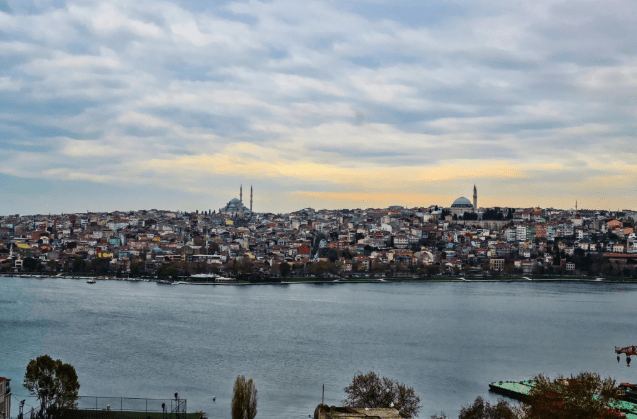A powerful 6.2 magnitude earthquake struck near Istanbul on Wednesday, shaking the city and prompting urgent safety warnings. The tremors, which hit just before 1pm local time, were strong enough to cause panic among residents and tourists alike.
Earthquake Jolts Istanbul
Turkey’s largest city experienced a series of tremors, with the most powerful quake hitting the Silivri district at 12.49pm local time (10.49am BST). The epicentre was located around 40km south of central Istanbul, beneath the Sea of Marmara at a depth of 10km.
The earthquakes rippled through western suburbs, areas that are especially popular with tourists during spring and summer months. Shockwaves were felt beyond Turkey, reaching as far as Greece, Bulgaria, and Romania.
The Istanbul governor’s office confirmed: “Due to panic, 151 of our citizens were injured from jumping from heights. Their treatments are ongoing in hospitals, and they are not in a life-threatening condition.”
Local Reaction and Impact
Although the epicentre was offshore, the quakes were intense enough to shake buildings and bring traffic to a standstill in several parts of Istanbul. Mayor of Kucukcekmece, Kemal Cebi, reported: “No negative developments yet,” but added that high population density and ageing infrastructure in the area are ongoing concerns.
The Istanbul Metropolitan Municipality reassured the public that there were no “serious cases” related to the quakes.
BBC correspondent Orla Guerin, who has lived in the city for six years, shared her personal experience: “I’ve never felt an earthquake this strong before in Istanbul.”
Turkey sits atop two major fault lines, and Istanbul’s location makes it particularly vulnerable to seismic activity. Experts have been warning for years that a major earthquake could strike the city.
The memory of the devastating 2023 earthquakes, which killed over 55,000 people in Turkey and Syria, remains fresh. That disaster levelled entire neighbourhoods and left thousands homeless.
Geologist Naci Görür warned on social media: “These aren’t the major quakes we’ve been fearing. The real danger lies ahead, with expected magnitudes above 7.”
He added that the recent tremors have increased pressure on the Kumburgaz faultline, making a more destructive quake increasingly likely.
In response to these threats, both local and national governments have launched reconstruction efforts to retrofit or demolish structurally vulnerable buildings.
Travel Advice for UK Nationals
Following the earthquake, the UK Foreign Office swiftly issued updated guidance: “A 6.2-magnitude earthquake occurred in the Sea of Marmara near Istanbul, on 23 April 2025. For the latest information, visit Turkey’s Disaster and Emergency Management Authority’s (AFAD) earthquake page.”
Travellers are urged to follow advice from local authorities, tour operators, and accommodation providers. British nationals are also reminded that:
- Travel is still advised in most of Turkey, with exceptions near the Syrian border.
- Demonstrations have sparked unrest recently, and caution is advised in affected areas.
- Travellers should stay alert and informed at all times.
A Foreign Office spokesperson told Metro the situation is being closely monitored and advice will be updated as needed.
What Should Travellers Do?
If you’re heading to Turkey or are already in the country, knowing what to do during an earthquake is essential:
- Drop to the ground, cover your head, and hold onto something sturdy.
- Stay indoors if possible and avoid standing in doorways.
- If you’re near the coast, move to higher ground to avoid tsunami risk.
- Follow local evacuation or shelter advice post-shock.
- British nationals can contact the FCDO’s crisis service for assistance if affected.
Pelin Bengu of Intrepid Travel Turkey offered guidance for those considering cancelling: “Unless the Foreign Office changes its advice for travel to Turkey, normal booking conditions will apply… If you’re concerned about travelling to Turkey, it’s best to contact your travel agent or tour operator for advice.”
While the recent earthquake has shaken Istanbul, it hasn’t triggered an immediate change in travel advice for most of Turkey. The UK government urges caution but has not restricted travel to Istanbul or other major cities.
Travellers are advised to stay updated, take precautions, and make informed decisions based on current guidance. As always, safety should come first when exploring destinations along active fault lines.






